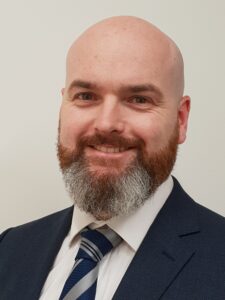
Dr Cam McLaren
Two years after Victoria began Australia’s first Voluntary Assisted Dying program, one oncologist has described how he has had to take a break from the scheme to avoid burnout.
Melbourne oncologist Dr Cameron McLaren says the scheme is generally working well but the high demand is putting a disproportionate burden on the small number of specialists doing patient assessments.
Speaking on an AHPRA-hosted podcast about Voluntary Assisted Dying, Dr McLaren said he had signed up for VAD training in the naive belief that most oncologists would get involved, only to find that he was one of the few VAD-trained specialists in the state available to for patients to meet the eligibility requirement of having both a GP and specialist involved in the VAD pathway.
With oncologist numbers being only 4% those of GPs, this has resulted in him being involved in over 150 cases of applications for of VAD, whereas most GPs who signed up have been involved in half a dozen, he said.
“At the moment, there is a real clustering of the assessment provision amongst the specialists. So I think it’s very important that [this] difference is appreciated in terms of workforce availability,” he said.
“It’s really quite difficult to obtain a specialist who’s willing to provide a VAD assessment, who’s done the training and then, when the patient requires a home visit, you know, specialists don’t do home visits as a rule … GPs do home visits, and that’s what many patients need.
“So it’s also very hard to find a VAD trained specialist who will do home visits and then one who will also provide practitioner administration, also, then becomes an even rarer breed. So you can see how those requirements have led to a significant strain on those of us who are providing the assessments at a speciality level.”
Dr McLaren said other states appeared to have adopted a better VAD model in which two non-specialist doctors could use prognostic information provided to them by a specialist to find that patient eligible. He therefore hoped that rules around the VAD model would be reviewed at state and federal level and consider amendments to allow more involvement from non specialist doctors and to allow discussion via telehealth.
Describing his involvement in the scheme as “incredibly rewarding”, Dr McLaren said the workload had become so taxing that had recently decided not to accept any more referrals for a month.
“I’ve been working quite hard for the last two years on providing voluntary assisted dying to a lot of Victoria, actually, seeing patients all over the state. And I don’t think I realised how much of a toll it was taking at the time. And after having come up for air for a month, I think it certainly was. So I think we need more people trained to share that load. We need more doctors to take up this role. We need more doctors in rural areas to take up this challenging aspect,” he said
In the podcast, Dr McLaren said he believed an oncologist’s involvement with voluntary assisted dying was “a very normal progression of what we do in terms of patient-centred care,” and was about offering patients control.
“We as doctors are there to provide education and guidance with regards to medical decisions that are made by patients. We are not there to make decisions for patients or create the path for the patients, we’re there to educate and walk with them,” he said.
“On an individual level, I think people have really found it gives them a lot of comfort in terms of receiving the medication. There’s that there is a real palliative effect of receiving this medication or even having wishes respected. And … when I see patients, some of them are very close to the end of their life and I know that we’re not going to have a good chance of getting through the application process because that does take a significant amount of time. But people still feel validated and heard, and it is palliative to go through the process anyway.
But Dr McLaren said there was still a lot of misunderstanding among health practitioners about the VAD scheme and the laws around it, which led to many rejecting any involvement with it.
“I don’t think the education has been optimal amongst doctors, generally, and health care professionals, generally, outside of the formal education that is provided on an opt-in basis. So, people who undergo the training, I think, are educated reasonably well. But this is legislation that applies to every doctor, not just the ones who have done the training and many doctors have not been educated about what they can and can’t talk about, or what the rules are here, and they’re very worried about contravening laws that they haven’t had explained to them,” he said.
The full podcast, which includes a conversation with GP Dr Nola Maxwell and VAD advocate Andrew Denton is available at the AHPRA website.